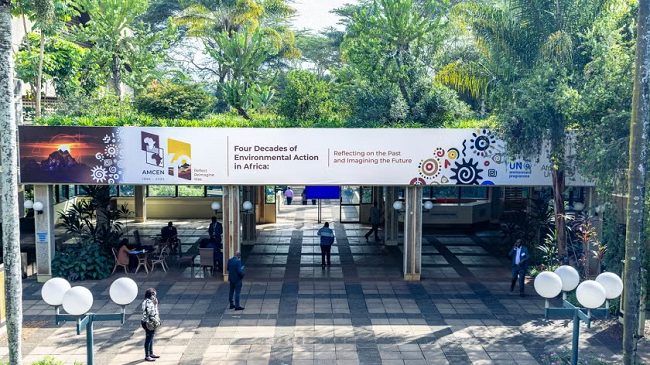As the 20th African Ministerial Conference on the Environment (AMCEN) concluded on Friday, July 18, 2025, in Nairobi, Greenpeace Africa acknowledges the collective resolve to address the continent’s most pressing environmental challenges in the Tripoli Declaration while calling on African environment ministers to strengthen their commitments on critical environmental issues.

Key wins
Ministers have pledged support for a robust Global Plastics Treaty that tackles pollution across the entire lifecycle, emphasised the need for accessible climate finance to build resilience, and committed to protecting vital ecosystems such as wetlands, through enhanced governance and direct support for Indigenous Peoples and Local Communities (IPLCs).
Greenpeace Africa particularly applauds the declaration’s focus on circular economy principles and sustainable chemicals management, which echo the continent’s growing momentum toward reducing plastic production and ensuring polluters bear the cost of environmental damage.
Missed opportunities
However, the declaration falls short in holding polluters accountable for climate damages and inadequately addresses the crucial role of Indigenous Peoples and Local Communities in forest protection, lacking specific funding mechanisms, legal recognition, or meaningful decision-making inclusion.
Esther Syombua, Regional Coordinator at Greenpeace Africa, said: “While the declaration calls for enhanced governance and finance, it avoids direct corporate accountability measures like polluter-pays principles, fossil fuel company taxation, or mandatory compensation schemes – effectively letting polluting corporations off the hook while placing the burden on African governments.”
Greenpeace Africa is, however, concerned about the declaration’s implicit support for false solutions such as carbon credit schemes, which risk undermining genuine climate action.
Hellen Kahaso Dena, Pan-Africa Plastic Project Lead at Greenpeace Africa, said: “Carbon credits and other false solutions like waste-to-energy incineration often serve as greenwashing tactics by polluters, diverting attention from genuine emission reductions and perpetuating harmful practices like open burning hat disproportionately affect vulnerable African communities. We urge ministers to prioritise proven strategies, including production caps on plastics, enforceable polluter-pays mechanisms, and direct financing for IPLCs to safeguard forests and biodiversity.”
The outcomes of AMCEN 20 will directly inform Africa’s positions at upcoming international forums, including INC 5.2 on plastics, COP30 on climate, and UNEA 7. Greenpeace Africa calls on African governments to build on this momentum by implementing the Tripoli Declaration with concrete, time-bound actions that centre equity, community rights, and ecological integrity.
Greenpeace Africa says it remains committed to working with African governments and civil society partners to advance environmental protection and climate justice across the continent.
